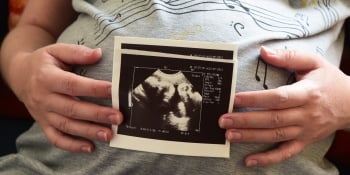Published: 16.04.2024

· The European Parliament adopted a resolution calling for the inclusion of the so-called right to abortion in the Charter of Fundamental Rights of the European Union.
· The document, adopted by an overwhelming majority, states that the ‘right to abortion’ is one of the most important human rights, falling within the scope of ‘European values’, and that the protection of human life has been portrayed as a ‘violation of human rights’ or a ‘form of gender-based violence’.
· The authors of the resolution also repeatedly refer to Poland, calling on the authorities of our country to quickly ensure ‘full access to safe and legal abortion’.
· Prior to the vote, the Ordo Iuris Institute handed over a memorandum to the MEPs indicating that on the grounds of international law, the so-called right to abortion does not exist.
In the resolution adopted on 11 April, the European Parliament called for the inclusion of the so-called right to abortion in the Charter of Fundamental Rights. The document was adopted by a majority of 336 votes, with 163 against and 39 abstentions. A few days earlier, the MEPs had received a memorandum prepared by the Institute’s experts.
In the document, the MEPs refer to, among several other things, a number of earlier resolutions in which the EP condemned the increase in the scope of protection of the lives of unborn children in Poland, as well as the United States Supreme Court ruling which held that the Constitution of that country does not guarantee the so-called right to abortion. The MEPs also referred to the World Health Organisation’s guidelines on ‘safe abortion’; the European Court of Human Rights’ case law; as well as documents of the UN Human Rights Committee and the Committee on the Elimination of Discrimination against Women.
The resolution states that ‘access to sexual and reproductive health and rights, including safe and legal abortion care, constitutes a fundamental right’, and that ‘the fulfilment of reproductive and sexual rights and health is essential in upholding human dignity’ (para. A.). It went on to point out that ‘people’s ability to exercise their reproductive autonomy... is essential to the full realisation of human rights for women, girls, and all persons who can be pregnant’ and that everyone’s ‘full autonomy must be guaranteed’ (para B.). Later in the document, its authors emphasise the importance of ‘abortion care’, stating that it is central to the rights enshrined in the Charter of Fundamental Rights, including rights such as ‘human dignity’, ‘personal autonomy’ or ‘mental integrity’ (para. C.).
The MEPs who authored the resolution then refer to documents by United Nations bodies. They address, among other things, the recommendations of the UN Human Rights Committee, which states that the criminalisation of abortion constitutes a violation of women’s reproductive and sexual rights and health, as well as a form of gender-based violence, not to mention the recommendations of the Committee on the Elimination of Discrimination against Women, which considered that the decision to voluntarily terminate a pregnancy falls within the scope of the right to privacy.
The MEPs also refer to the March vote held by the French Parliament, where MPs and senators supported a project to enshrine the so-called right to abortion in their constitution, and likewise report on similar projects in other countries. This section (para. H.) also refers, in critical terms, to the ‘backsliding on abortion rights in the EU and globally’, citing the United States and Poland, among others, as examples. The so-called right to abortion is portrayed in the document as a key element of ‘gender equality’ and a right that should be enshrined in the constitutions of the Member States. By contrast, the protection of human life is treated as a ‘violation of human rights’ and a ‘form of gender-based violence’ (para. I. and para. L.). It also states that restricting access to abortion ‘obstructs the fulfilment of people’s rights, hinders countries’ development, and undermines democracy, European values, and fundamental rights’ (para. M.). The MEPs go on to lament that ‘across the globe, regressive forces and ultra-conservative religious and far right actors are trying to undo decades of human rights advances and impose a harmful worldview on gender roles in families and public life’, and it is noted that such activity ‘poses a threat to the rule of law in Europe’ (para N.).
These MEPs went on to condemn the ‘restriction of access to abortion care in Poland’, which was said to have followed an ‘illegitimate Constitutional Tribunal’ ruling in 2020, with the ruling itself said to have led ‘to the deaths of at least six women’ (para. P.). Criticism has also been levelled at other countries, such as Hungary, which in September 2022 passed a law obliging women who are seeking an abortion to listen to the ‘fetal heartbeat’; and Italy, where a large proportion of doctors are expected to invoke the conscience clause and refuse to participate in abortion practices (paras P., S., and T.). Furthermore, the authors of the resolution condemn ‘disinformation on abortion’, which ‘strikes at the autonomy of women’ (para. W.).
In the resolution’s normative section, the European Parliament calls on the European Council to include ‘reproductive and sexual health care and the right to legal and safe abortion’ in the Charter of Fundamental Rights (CFR). To this end, the EP proposes to add a new point, 2a, to Article 3 of the CFR, which reads as follows (point 3 of the resolution): ‘Everyone has the right to bodily autonomy; to free, informed, full, and universal access to sexual and reproductive health and rights; and to all related healthcare services without discrimination, including access to safe and legal abortion’.
The European Parliament additionally condemns ‘in the strongest terms, the backsliding on women’s rights and all regressive attempts to restrict or remove existing protections for sexual and reproductive health and rights’ (point 4.). The EP further expresses concern at ‘the significant surge in funding for anti-gender and anti-choice groups in the world, including in the EU’, while calling on the Commission to ‘make use of all available tools to ensure that organisations working against gender equality and women’s rights, including reproductive rights, do not receive EU funding’ (point 5.).
In the following part of the document, the European Parliament calls on the Polish authorities to act in order to ensure ‘full access to safe and legal abortion’ (point 6.) and condemns the invocation of the conscience clause by doctors in situations where they refuse to perform abortions (point 8). Additionally, the resolution includes an appeal, addressed to various public authorities, calling for, among other things, access to a full range of reproductive and sexual health and rights services, including comprehensive, age-appropriate, and evidence-based education on sexuality and family-planning counselling (point 9.).
‘Yesterday’s resolution by the European Parliament is hardly the first time the institution has called for ‘broad access to abortion care’ and stigmatised the defenders of unborn life. Similar appeals were made much earlier. What is shocking is the demand to recognise the right to deprive other people of their lives – for that is what abortion is – as a human or a fundamental right, which should be enshrined in the Charter of Fundamental Rights. The fundamental and most important right of every human being, which conditions the possibility for one to exercise all other rights, is precisely the right to life. A person reading the resolution may also be struck by a number of false statements contained therein, such as, for example, the assertion that limiting ‘access to abortion’ has a negative impact on national development, or the opinion that the broad scope of protecting unborn life has led to the deaths of several women in Poland. In the context of the adopted resolution, it is worth remembering that in accordance with Article 8(1) of the Constitution of the Republic of Poland and the jurisprudence of the Constitutional Tribunal, our fundamental law is the highest normative act in the hierarchy among sources of law, and that human life is, as a rule, subject to protection from the moment of conception,’ points out Patryk Ignaszczak of the Ordo Iuris Institute’s Centre for International Law.

19.04.2024
· A draft directive on combating violence against women is being discussed in the European Parliament.
· This draft may raise concerns due to its extremely broad definition of ‘violence’, as well as the government’s mandate to censor ‘offensive’ online content or its obligation to combat ‘harmful gender stereotypes’.
· The directive may also entail a restriction of the presumption of innocence in cases of sexual offences, by indirectly presuming a man’s guilt.

· The anti-life projects proposed by our ruling coalition are only the beginning of a political process leading to the normalisation of the mass killing of unborn children.
· The French law of 1974, which was only supposed to open the floodgates to prenatal killing for women in distress, in fact established a new legal foundation through which almost a quarter of a million children lose their lives in France every year.

· Abortion advocates manipulate human rights slogans which remain relevant to Polish citizens in order to force the public into supporting abortion.